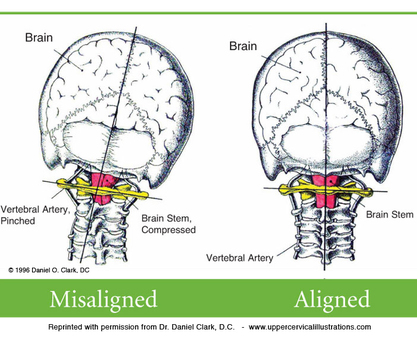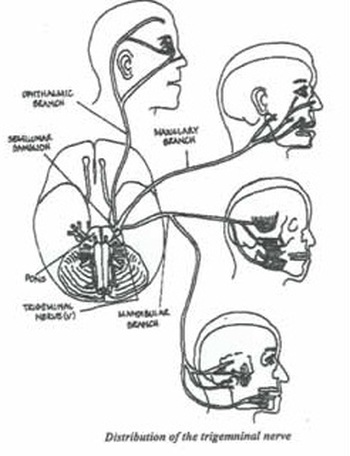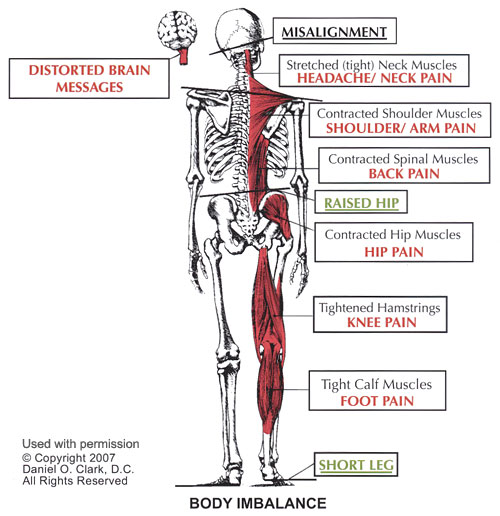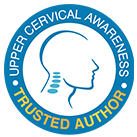jaw disorders
|
Jaw Disorders: Are You Suffering From TMJ or TMD?
Can A Problem In The Upper Neck Cause Jaw Problems? YES!
TMJ, TMD pain cause and effect? One of the primary causes of TMJ pain and disorders is damage to the joint itself. Direct or indirect trauma can affect the TMJ and clearly cause pain and dysfunction. Motor vehicle accidents, sports injuries, and dental work have been shown to trigger TMJ disorders, but even subtle repeated traumas like clenching the teeth, excessive gum chewing, nail biting, or cradling a phone between your shoulder and the side of your head can cause TMJ pain. One of the most commonly overlooked causes of TMJ pain is trauma to the upper neck and nervous system.
Trauma to the upper neck can cause a misalignment, which results in pressure or irritation to the trigeminal nerve. This pressure can cause the muscles that control the jaw to malfunction, thereby changing the movement of the TMJ. The joints do not work properly because the disc is pinched while opening or closing the jaw, and the neck and shoulder muscles go into painful spasms during the normal process of eating, talking, laughing, or smiling.
Trauma to the upper neck can cause a misalignment, which results in pressure or irritation to the trigeminal nerve. This pressure can cause the muscles that control the jaw to malfunction, thereby changing the movement of the TMJ. The joints do not work properly because the disc is pinched while opening or closing the jaw, and the neck and shoulder muscles go into painful spasms during the normal process of eating, talking, laughing, or smiling.
Symptoms of TMJ or TMD Dysfunction?

TMJ dysfunction or syndrome occurs when the joint is misaligned or malfunctions. Over time, this abnormal wear and tear can cause irritation, inflammation, and eventually arthritis within the joint itself, all leading to TMJ dysfunction. The symptoms of TMJ dysfunction can appear suddenly after a trauma or they may take years to develop.
The symptoms of TMJ vary from person to person and can affect one or both joints. Symptoms vary from mild to severe and may include:
• Clicking or popping of the joint
• Pain with or without chewing
• Locking of the jaw
• Toothache
• Facial and/or neck pain
• Headaches
• Earaches
• Tinnitis (ringing in the ears)
• Clogged or stuffy ear
Common medical treatments for TMJ dysfunction include:
• Over-the-counter and prescription drugs
• Splints
• Steroids
• Surgery
While these treatments may offer relief, they are often temporary and may have potentially dangerous side effects. Because of the close relationship between the TMJ and the upper cervical spine, an upper cervical doctor should be consulted. The longer a person has the problem, the more damage can be done to both the jaw and the neck.
The symptoms of TMJ vary from person to person and can affect one or both joints. Symptoms vary from mild to severe and may include:
• Clicking or popping of the joint
• Pain with or without chewing
• Locking of the jaw
• Toothache
• Facial and/or neck pain
• Headaches
• Earaches
• Tinnitis (ringing in the ears)
• Clogged or stuffy ear
Common medical treatments for TMJ dysfunction include:
• Over-the-counter and prescription drugs
• Splints
• Steroids
• Surgery
While these treatments may offer relief, they are often temporary and may have potentially dangerous side effects. Because of the close relationship between the TMJ and the upper cervical spine, an upper cervical doctor should be consulted. The longer a person has the problem, the more damage can be done to both the jaw and the neck.
TMJ, TMD and The Trigeminal Nerve
Movement of the left and right TMJs must be coordinated, working at the same time for the jaw to move properly. This movement is orchestrated by a complex set of muscles that are directly controlled by the body's nervous system; specifically branches of the trigeminal nerve, which is one of the most complex and powerful nerves in the body. It feeds sensation and function to one’s jaws, face, tongue, sinus, palate, eyes, teeth, and lips. Since the trigeminal nerve feeds the jaw, it is closely associated with the function of the TMJ and is critical in the development of TMJ pain.
There is a delicate working relationship between the TMJ, the muscles that move the jaw, and the nerves that control these muscles. Therefore, healthy function of the TMJ system requires normal structure and function of both the temporomandibular joints and the trigeminal nerve.
There is a delicate working relationship between the TMJ, the muscles that move the jaw, and the nerves that control these muscles. Therefore, healthy function of the TMJ system requires normal structure and function of both the temporomandibular joints and the trigeminal nerve.
Are You A Candidate For Upper Cervical Care?
Dr. Grayson Blom works with a nationwide group of Doctors expertly trained and specializing in the Upper Cervical procedure. Dr. Grayson Blom is also one of the few Doctors in the state of Idaho trained and certified in the Upper Cervical procedure. We are dedicated to helping patients just like you who suffer from subluxation induced TMJ or TMD syndrome, chronic headaches, migraines, neck pain, shoulder pain, back pain and other spinal-related disorders.
And right now, our office is offering a COMPLIMENTARY CONSULTATION to determine if you are a candidate for Upper Cervical care.
Take the first step toward reclaiming your health… Call our office (208) 559-0541 or fill out a consult request form.
And right now, our office is offering a COMPLIMENTARY CONSULTATION to determine if you are a candidate for Upper Cervical care.
Take the first step toward reclaiming your health… Call our office (208) 559-0541 or fill out a consult request form.




